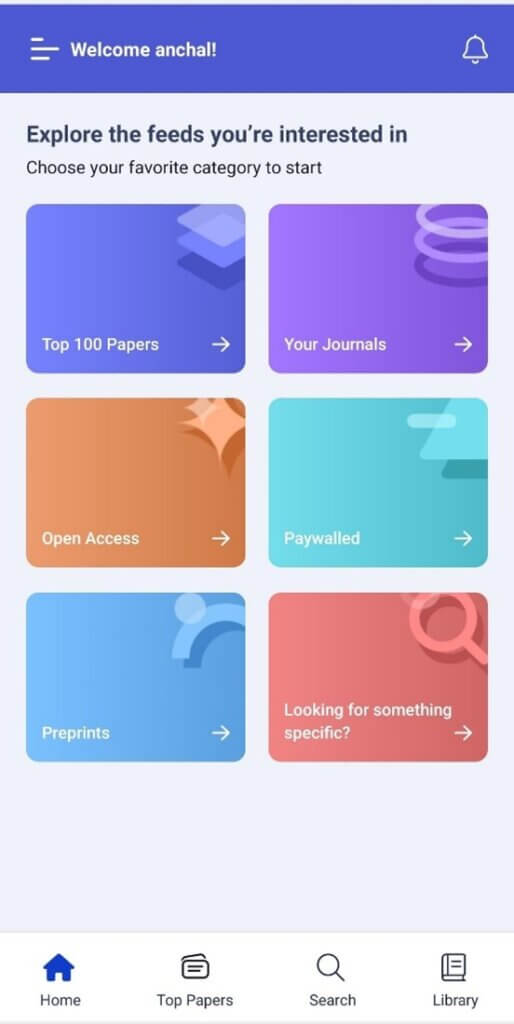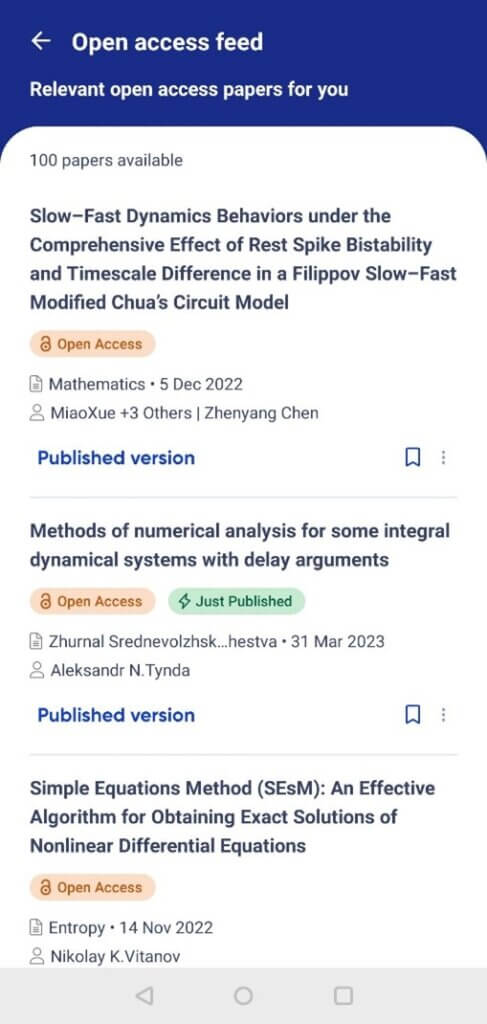
Research is the backbone of scientific progress. As researchers work to make new discoveries and create new knowledge, they rely heavily on research reading. This allows them to stay updated on all recent developments in their specific domains and come up with innovative solutions to existing challenges. However, finding the right research papers and scholarly literature to read is far from easy. This is where R Discovery harnesses the power of AI and machine learning algorithms to simplify this researcher’s task. By recommending carefully curated research papers to users, based on their interests, reading history, and other preferences, the smart reading app saves both time and effort by eliminating the need to manually search for relevant papers. But we’re not stopping there!
Research reading made better with R Discovery
We noticed by observing the users on our platform, that different researchers have their own preferences when it comes to research sources. Some researchers prefer sticking to only high-quality journals, while others like to keeping track of every piece of relevant research that is published. Recognizing an opportunity to improve the research reading experience for our more than 2.3 million users, we decided to develop an exciting new feature. R Discovery now offers researchers a chance to enhance their feeds and improve their reading with various AI-curated research feeds for researchers. This enables faster exploration and discovery of relevant content based on a user’s preferred reading style. Here are some of the curated research feeds available to R Discovery users.

1. Top 100 research papers
Finding relevant research papers is crucial for researchers to stay updated on the latest developments in their field and gain perspectives to support their own research. An inability to find and read relevant research papers, despite dedicating long hours to this effort, is likely to be demotivating and can even curb researcher progress. R Discovery solves this challenge by presenting users with fresh research recommendations every time they visit the app. Our advanced AI algorithms browse more than 100 million research papers housed within R Discovery to curate the top 100 research papers for each user, based on their topics of interest. This feed is dynamic and refines its recommendations as the system learns more about the researcher’s likes and dislikes.
2. Preprints feed
While peer-reviewed papers are traditionally accepted as reliable sources in the scientific community, preprints have become increasingly popular among researchers. Preprints are seen as a faster, better way to share and consume, often time-critical, research findings. This also allows researchers from all over the world to access the latest research, regardless of their location or resources. We all witnessed the unprecedented surge of preprints during the COVID-19 pandemic; the world could not wait for journals and peer reviewers as they scrambled to find solutions to a global crisis. The fact that more than 6,700 Covid-related preprints were posted between January and April of 2020 alone is testament to this fact.1 R Discovery is leveraging this thirst for knowledge with an exclusive Preprints feed, which brings together the most relevant preprint recommendations for R Discovery users. The best part is that researchers do not need to visit different preprint servers to access the latest research as R Discovery unifies all relevant preprints in once place for you to read. This allows researchers to expand their research reading with easy access to preprints, ensuring they stay updated on all new and upcoming research.
3. Open access feed
Full-text papers provide a comprehensive understanding of a research study. While our Top 100 research papers feed is a great way for researchers to keep up with the latest research, it’s only when researchers have open access to full-text papers that they can delve into the study’s methodology, data analysis, and conclusions. Being able to freely access full-text open access articles empowers researchers to enhance their own research study, which may then go on to gain a larger audience, with increased visibility and potentially higher impact. With this in mind, R Discovery has created a personalized Open Access research feed where researchers can easily access and read full-text papers that they may be more likely to cite in their own work.

4. Paywalled papers feed
While full-text papers are key for researchers to gain a comprehensive understanding of a study, these are not always available for free. Many top journals still publish research papers behind paywalls and not every researcher can afford to buy a subscription to read relevant papers. The good thing is that most researchers can unlock paywalled papers via their institute or library subscriptions, but many don’t know how. R Discovery simplifies this for users, allowing them to access paywalled reading beyond their library websites. Out integrations with GetFTR and LibKey services enable users to add their institute to their profile and use the institute’s credentials to read unlimited paywalled papers for free. R Discovery suggests the best matched papers, which are otherwise paywalled, and present these to users in the form of the personalized Paywalled papers feed.
5. Top Journals feed
In some wide-spread research domains, there is a huge amount of research getting published every day. In such cases researchers usually keep an eye on to ensure they are not missing out on any quality research being published. With its Top Journals feed, R Discovery creates a space for researchers to discover the most relevant papers from their preferred journals.
By providing researchers with the option of multiple curated research feeds on one centralized platform, R Discovery aims to help researchers further optimize the literature search and reading journey. Not only do these curated research feeds help users save time, it allows for more focused research reading based on your own reading style. And this is just the tip of the iceberg.
R Discovery is working on more feeds that will keep researchers updated on conference papers, seminar papers, and patents. With this, R Discovery is moving one step closer to its goal of making research reading a happy habit for academics across the globe. Have you checked out our AI-curated research feeds yet?
Let us know what you think or if you want to see more specialized feeds by writing in to us at discovery@researcher.life.
References:
- Fraser N Brierley L Dey G et al. Preprinting the COVID-19 pandemic. bioRxiv. 2020 (published online Sept 18; preprint). https://doi.org/10.1101/2020.05.22.111294


